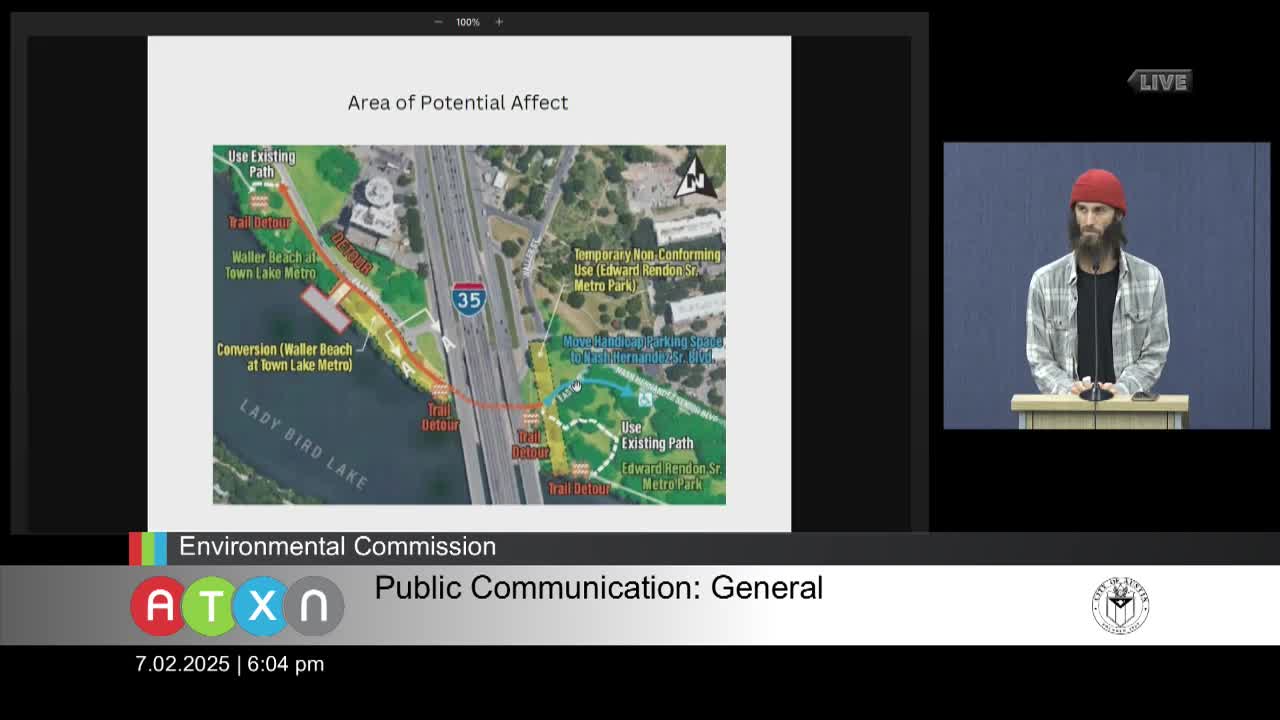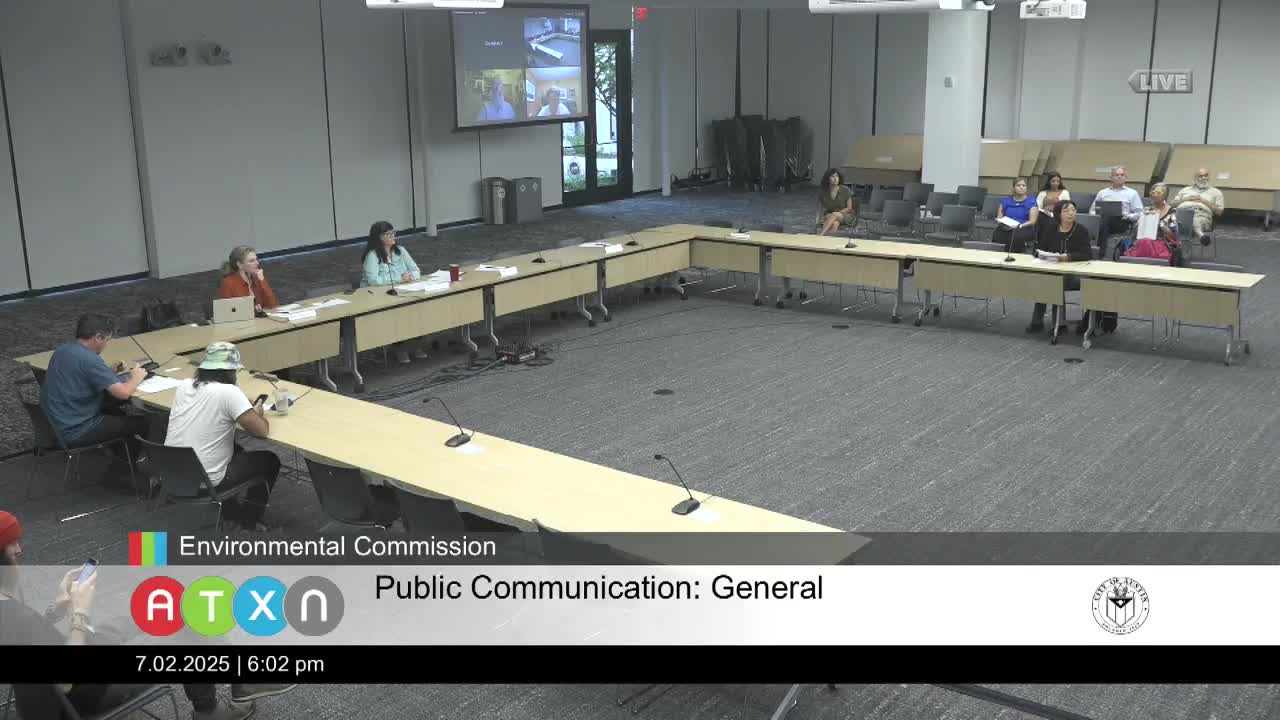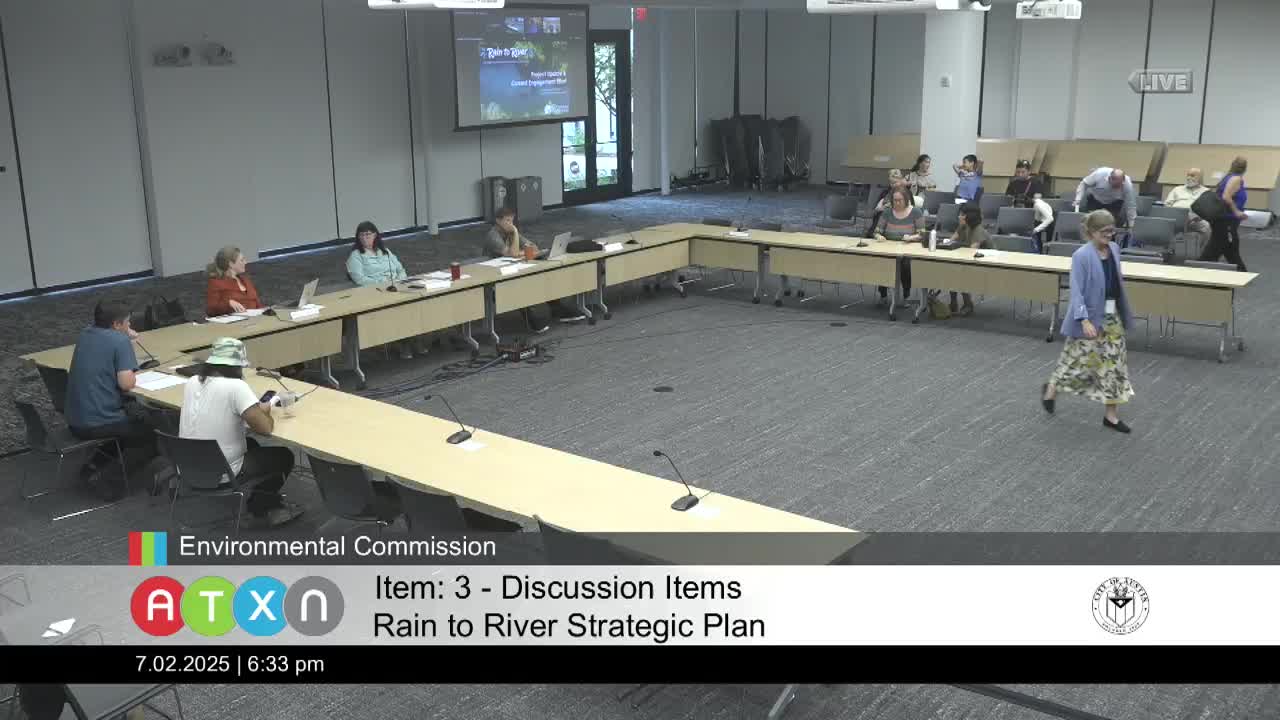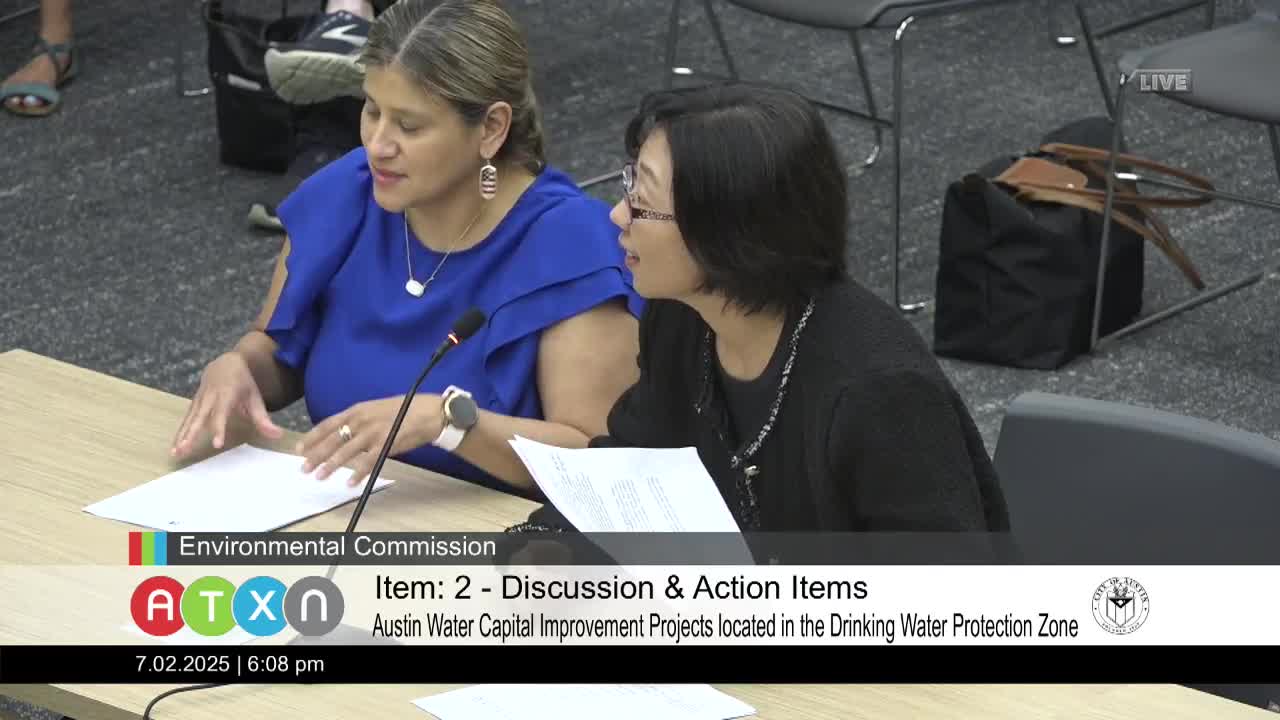Article not found
This article is no longer available. But don't worry—we've gathered other articles that discuss the same topic.

Public commenter raises concerns about TxDOT condemnation of Edward Rendon Senior Parkland and potential removal of historic pecan trees

Equity Action urges funding for climate equity measures in community investment budget

Watershed Protection launches multi‑phase Rain to River strategic plan with focused outreach to underserved communities

